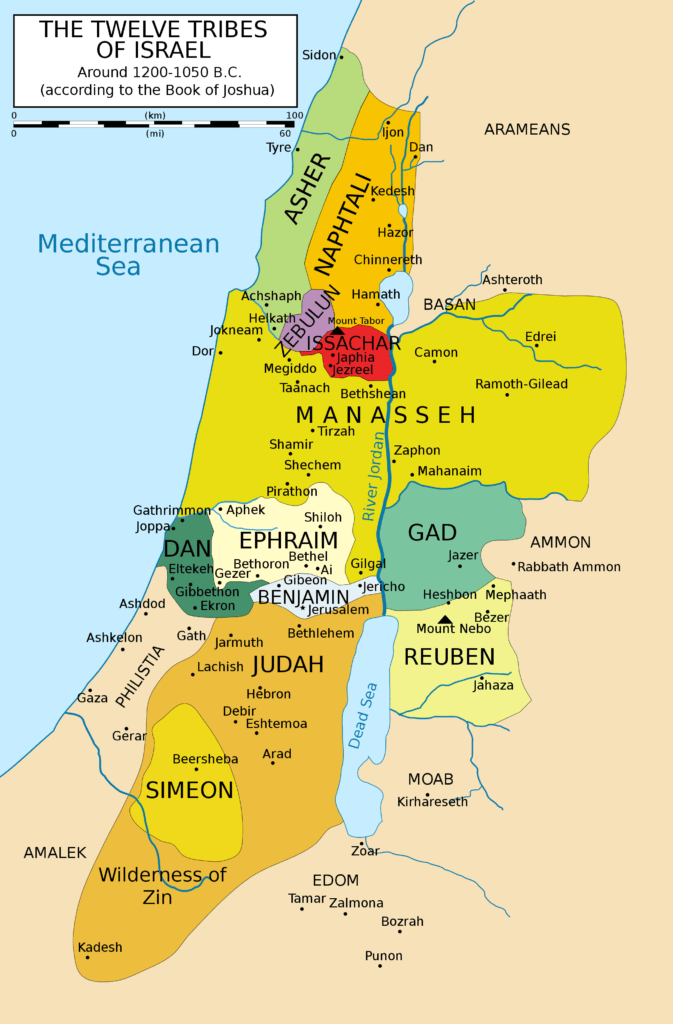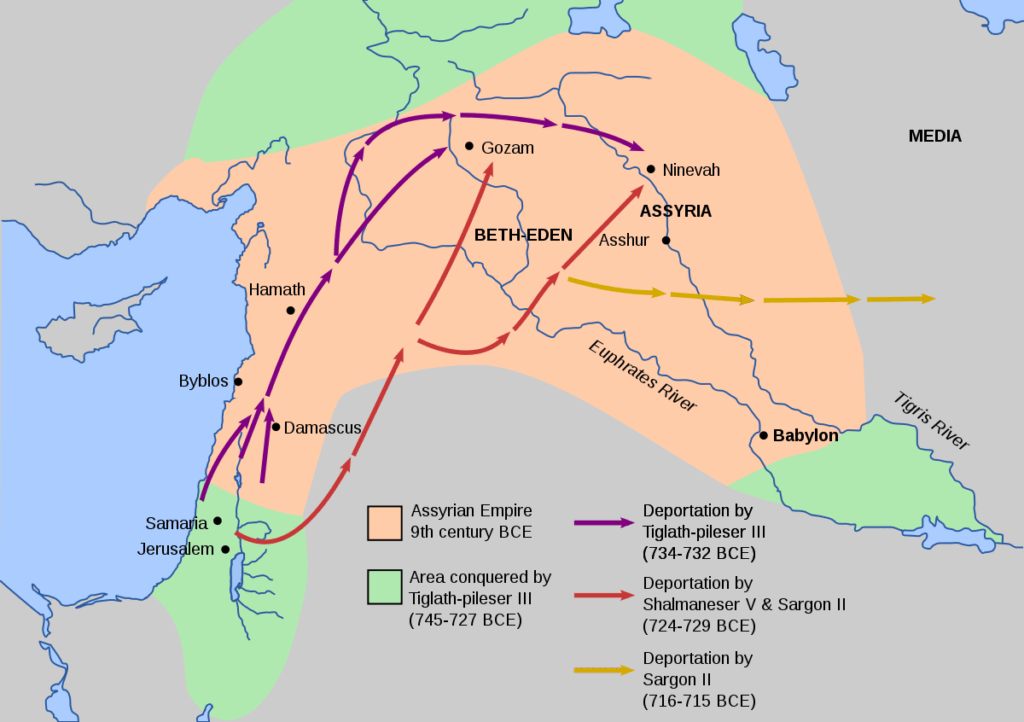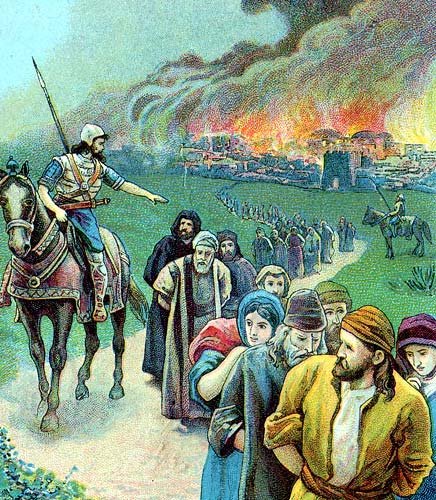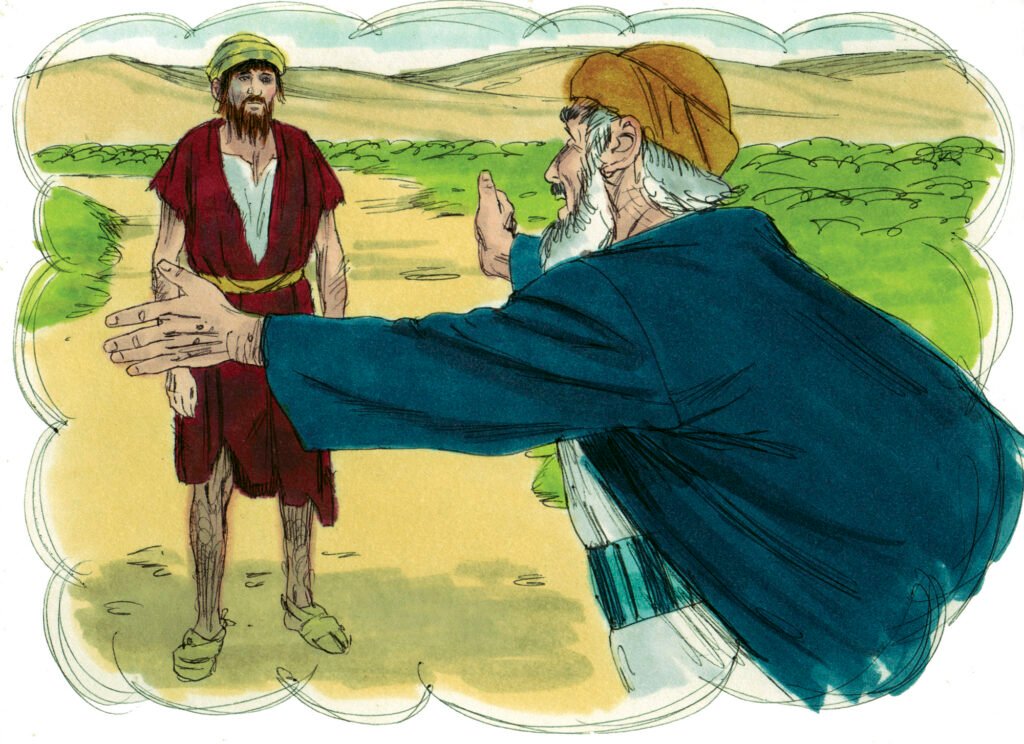VISION
The mission of Nazarene Israel is that the whole world may know the true faith of Israel in our Father Yahweh and in the Messiah Yeshua. To know that Yeshua did not come to create a new religion, nor to replace Israel, but came to seek and save the lost sheep of the house of Israel (Ephraim), so that together with Judah we can once again become one people. set apart for Yahweh.
Nazarene Israel’s vision for the Beit Sefer (Children’s Project) is to raise the new generation in the right way, so that they in turn can become parents who will raise their children to know, love and obey Yahweh’s commandments. And we seek to do this in a way that Yahweh’s children and their families have a set apart (holy) environment, with clean educational material created by dedicated parents and disciples of Yeshua. So that we can, as a unit, face the end times as a faithful community of disciples of Yeshua Messiah.
Nazarene Israel seeks that we may come to know and obey Elohim in spirit and in truth and walk in His ways for generations to come, so that Yahweh will be pleased with us and take us back to the Land of our fathers. And teaching and raising our children to know and walk in His ways is a big part of this mission.
MISSION.
Background:
a) The Twelve Tribes.
The history of the nation of Israel is long and complex, but originally there were twelve (or thirteen) tribes in Israel. As we explained in the study Nazarene Israel, these twelve tribes were later divided into two groups. The ten northern tribes were called the house of Ephraim (also the house of Israel or Joseph), while the two southern tribes were called the house of Judah. In general, the ten northern tribes are represented today by the Christians, while the two southern tribes are represented today by the Jews. (It is more complex than that, but in simplified terms, that is accurate).


b) Ephraim and the Dispersion.
Yahweh originally gave the twelve tribes a set of Instructions (Torah) in the wilderness of Sinai. However, by 732 B.C., the ten northern tribes of the house of Ephraim (or house of Israel) stopped obeying Yahweh’s Torah, and even resorted to idol worship (1 Kings 11 and 12). Because of their disobedience, the ten tribes of Ephraim (Israel) were taken captive by the Assyrian army, and then taken into what is called the Assyrian Dispersion (plus a part of Judah).
c) Judah, the Exile and the Return to the Land of Israel
Judah stayed in the land after the Assyrian dispersion of the house of Ephraim, but he did no better than his brother in keeping Yahweh’s Torah, so he was sent into exile in Babylon. 70 years later part of Judah returned to the land of Israel, and a larger part (90%) remained in Babylon.

In Babylon the rabbinical order arose, which elevated the authority, or the word, of men (rabbis) to the same level as the Word of God, which directly violates one of the main precepts of Yahweh’s Torah, which is that we are not to do what seems right in our own eyes (Numbers 15:39, Deuteronomy 12: 8, etc. ), but that we must be careful to do only what He commands, realizing that His knowledge is higher than our knowledge, and His ways are above our ways.
Devarim (Deuteronomy) 4: 1-2
1 “Now, O Israel, listen to the statutes and the judgments which I teach you to observe, that you may live, and go in and possess the land which Yahweh Elohim of your fathers is giving you.
2 You shall not add to the word which I command you, nor take from it, that you may keep the commandments of Yahweh your Elohim which I command you.
The result was that, although the rabbinic “Torah Law” has many things in common with Yahweh’s Torah, it effectively elevates the rabbis to the same level as Yahweh. This, in effect, serves as a satanic deception (i.e., it is the synagogue of Satan), because it teaches the Israelites to heed man-made laws and traditions, rather than obey Yahweh. (For more details, see Nazarene Israel).

d) The Renewed Melchizedekian Order of Messiah.
Because the Levitical (rabbinical) order was corrupt, and because the Ephraimites and most Jews were lost, assimilated and scattered abroad, Yahweh sent his son Yeshua to become the Messiah of Israel, who would begin to liberate the spiritual captives over the course of the next 2,000 years.
Luqa (Luke) 4: 16-21
16 Then he came to Nazareth, where he had been brought up. And as was his custom, he went into the synagogue on the Sabbath day and stood up to read.
17 And there was delivered to him the book of the prophet Isaiah. And when he opened the book, he found the place where it was written:
18 “The Spirit of Yahweh is upon me, because he has anointed me to preach the gospel to the poor; he has sent me to heal the brokenhearted, to proclaim liberty to the captives and recovery of sight to the blind, to set at liberty those who are oppressed;
19 To proclaim the acceptable year of Yahweh”.
20 Then he closed the book, gave it back to the attendant, and sat down. And the eyes of all who were in the synagogue were fixed on Him.
21 And He began to say to them, “Today this Scripture is fulfilled in your ears.”
However, the point is that Yahweh is an Elohim of order. He likes to have a separate priesthood (one that is separate from the people and in which the servants possess nothing, but are entrusted with great power and authority). If the lost tribes of Israel had been united as one, a separate and ordained priesthood possessing nothing would have been necessary to provide the correct structure and order. However, since after the destruction of Jerusalem Judah also went into dispersion, it could not have been a Levitical style order either, because the Levitical order needs an altar (whereas the Romans would soon put Israel out of the land). Therefore, Yeshua established a renewed Melchizedek order, which teaches the same principles and precepts as the Torah through Moshe, although the laws, statutes, ordinances and judgments are manifested differently (since the basis of authority in the Melchizedek order is mercy and ultimate trust in God, rather than punishment and legal judgment).
Servant-Based Leadership.
The spiritual government of Messiah is based on service. Whereas Babylonian and spiritual governments (i.e., priests) emphasize top-down forms of leadership in which the strong exploit the weak, Yeshua’s spiritual government is based on service. Those who love Yeshua set the example and serve. They lead by example, and then others follow their example and leadership.
Qorintim Alef (1 Corinthians) 11: 1
1 Imitate me, even as I also imitate the Messiah.
However, this servant leadership only works with people who truly fear Yahweh and seek to please Yeshua. It will not work for anyone else, because it is difficult. It is a narrow and afflicted path.
e) The Great Fall.

Within the land of Israel, in general, it is clear that Yahweh’s Torah serves as a bridal contract. That is, Elohim intends to take those who faithfully obey His every word in Spirit and in truth as a bride forever.
Yeshua confirms that this Torah covenant is with those who obey the Torah better than the scribes and Pharisees (the Karaites and the Orthodox), because they have His Spirit dwelling in them and continually manifesting through them.
Mattityahu (Matthew) 5: 17-20
17 “Do not think that I came to destroy the Torah or the Prophets. I did not come to destroy but to fulfill [i.e., in fulfillment of a part of the prophecies contained therein].
18 For truly I tell you, until heaven and earth pass away, one jot or one tittle shall by no means pass from the Torah until all is fulfilled.
19 Therefore whoever breaks one of the least of the commandments and teaches men, he shall be called least in the kingdom of heaven; but whoever does them and teaches them, he shall be called great in the kingdom of heaven.
20 For I say to you, unless your righteousness exceeds the righteousness of the scribes and Pharisees, you will by no means enter the kingdom of heaven.
Because of this, within the land of Israel, the Nazarene faith spread more rapidly than the non-Torah variations that emerged at the same time (e.g., Mark 9: 38-40). However, as the faith spread outside the land, Gentile believers in the dispersion did not always understand the need to happily submit to the full Torah lifestyle, so Torahless variations of Torah began to grow much more rapidly than the original Nazarene Israelite faith. As explained in the Nazarene Israel study, eventually the (Torahless) Christians came to outnumber the Nazarenes, and in 325 A.D. a Torahless variation of the faith called Catholicism emerged, which became hostile toward the Nazarene Israelite faith. At this point, the Nazarene Israelite faith was driven underground and eventually to extinction.
f) The Prodigal Son Returns.


There are several phases of the restoration of Ephraim, which we explained in the study Nazarene Israel. However, the first of them is the repentance of the Prodigal Son, which represents the Protestant Reformation.
In the parable of the prodigal son (Luke 15: 11-32), the elder brother represents Judah, who is still with the Father in His house (i.e., Israelite worship). The younger brother represents Ephraim (Israel, Joseph), who scattered to feed the swine (representing the idols and false worship of the church system). One day, the Prodigal Son comes to his senses and realizes that it would be better for him to humble himself and return to his Father’s House (representing Torah and Israel), than to remain in the Babylonian Church system. This turn first manifested itself in the Protestant Reformation of 1517 A.D., when the printing press made it possible for every man to have his own copy of the Scriptures and read the Scriptures for himself. This led to an increase in knowledge, but unfortunately it also led to the fragmentation of the body of Messiah (which is forbidden, and generally not desirable, but in this case it was necessary).
In 1863, the Prodigal Son came one step closer to home with the formation of the Seventh-day Adventist Church, which restored Shabbat to worship.
Through a variety of wilderness journeys and adventures, lost Ephraimites who have been called to believe in “Jesus” are studying and realizing that the Jesus system of the Church is not really the same as the Israelite Yeshua of Nazareth, and are changing their ways and their lives. Instead of simply worshiping Yeshua in a Roman-style amphitheater, they want to become His disciples in a synagogue setting. It is much more work, but for those who love Yeshua and feel called to serve Him, it is a joy to help contribute to the advancement of His Spiritual kingdom.
Today there are several nebulous and lukewarm crossover movements, including the Two House movement, Messianic Israel, the Ephraimite movement, Hebraic Roots and more. While there are many good people in these movements, the problem is that they are always disorganized. They have no real body structure and no real standards. They bear no resemblance to the original first century faith. Independent leaders and teachers sell books and videos for personal profit, ignoring the fact that the only time Yeshua became physically violent was when they were using His Father’s house to sell merchandise.
Yochanan (John) 2: 14-17
14 And he found in the temple those who were selling oxen and sheep and doves, and the money changers doing business.
15 Then he made a whip of cords, and drove them all out of the temple, with the sheep and the oxen, and poured out the money changers’ money and overturned the tables.
16 And he said to those who sold doves, “Take these things away! Do not make My Father’s house a house of merchandise!”
There are also several Jewish Messianic and Kabbalistic groups belonging to “the Pharisees who believed” (referring to Acts 11 and 15), who attempt to attract Yeshua’s people to a Rabbinic form of worship, perhaps ignoring the fact that Yeshua came to replace the Rabbinic order with a renewed order of Melchizedek. To make matters worse, many of these groups deny the deity of Yeshua and the Virgin Birth, and many also teach Kabbalah (which is demonism).
g) The Original Faith Restored.
Among all this activity, there are some true disciples who love Yeshua enough to work and give for the cause of establishing Yeshua’s kingdom here on earth in an organized, coordinated and disciplined manner (so that Yeshua will be pleased).
Mattityahu (Matthew) 6: 9-10
9 “After this manner therefore pray ye: Our Father which art in heaven, Hallowed be thy name.
10 Thy kingdom come. Thy will be done on earth as it is in heaven.
Many of them would join in that effort if it were possible to do so. This is our opportunity.

THE GREAT COMMISSION.
Yeshua gives His disciples a great mission and purpose to guide them in their lives here on this earth, by which their lives will be judged. That mission is to establish a global spiritual government for Him, in His absence. The key to this is to locate those who wish to observe (i.e. obey) all that Yeshua has said to do, and immerse them in His body and in His Name.
Mattityahu (Matthew) 28: 19-20
19 Go therefore and make disciples of all the nations, immersing them in my name
20 teaching them to observe all things whatsoever I have commanded you; and lo, I am with you always, even to the end of the age. Amen.
[Note: to understand why we immersed only in the name of Yeshua, see “Immersion only in the name of Yeshua”, in Nazarene Israel Scripture Studies, Volume 3].
After immersion, we teach them to do all that Yeshua has commanded us. However, to do this requires organization and a plan.
COMMAND AND SIGNAL.
a) Fivefold Ministry Order.
One of the many things Yeshua commanded is that we organize ourselves in the Dispersion according to what is called the Fivefold Order of Ministry. This is a means of organization whereby those who serve the most (and most faithfully) lead by example, and all who love Yeshua support them in this task as best they can.
Ephesians (Ephesians) 4: 11-16
11 And He Himself [i.e. Yeshua] gave some to be apostles, some prophets, some evangelists, and some pastors and teachers,
12 for the equipping of the saints for the work of the ministry, for the edifying of the body of Messiah,
13 until we all come to the unity of the faith and of the knowledge of the Son of Elohim, to a perfect man, to the measure of the stature of the Messiah’s fullness;
14 That we should no longer be children, tossed to and fro, and carried about with every wind of doctrine, by the deceitfulness of men, in the cunning craftiness of deceitful plotting,
15 but, speaking the truth in love, may grow up in all things into Him who is the head – the Messiah –
16 from whom the whole body, united and concerted by what each joint provides, according to the effective work by which each part does its work, causes the growth of the body for the edification of itself in love.
b) Apostolic Foundation.
The doctrine for the body must be established by what is called the Apostolic Foundation. This is known by various names, including the Beit Din Gadol (the Great Court, the Great Council) and the Council of Apostles and Elders. The so-called Jerusalem Council of Acts 15 was an instance of this leadership council.
Ma’asei (Acts) 15: 6
6 Now the apostles and elders came together to consider this matter.
The Council of Apostles and Elders is composed of the chief apostles of the separated priesthood and the chief congregational elders (of the lay priesthood). Normally, each of these will have the gift of an apostle or perhaps also a prophet, because apostles and prophets are (by definition) the two kinds of gifts that can hear the voice of Yahweh and speak according to clean doctrine. That is also the reason why they can be entrusted with the task of advising the direction and doctrine of the body, and it is because they listen to Elohim (and obey him).

Ephesim (Ephesians) 2: 19-22
19 Now, therefore, you are no longer strangers and aliens, but fellow citizens with the saints and members of the household of Elohim,
20 having been built on the foundation of the apostles and prophets, Yeshua Messiah himself is the chief cornerstone,
21 in whom the whole building, when assembled, becomes a temple set apart in Yahweh,
22 in whom also they are being built together for a dwelling place of Elohim in the Spirit.
As explained in our other documentation, the leadership of the Beit Din Gadol (Council of Apostles and Elders) is from the Nasi (President, Prince) of the Beit Din Gadol. He is usually selected by the Spirit, because he provides leadership and direction for the organization.
It is better to leave positions unfilled than to fill them with those who are not qualified.
We hope this document has explained the vision and mission of Israel Nazarene in the context of the Great Commission. Now that you have read this document, you should be able to explain how Israel Nazarene is organized and why. You should also be able to explain the phases of Nazarene Israel’s plan to establish Yeshua’s global spiritual government, as we are commanded.
For more details, see Torah Government, and Acts 15 Order.
